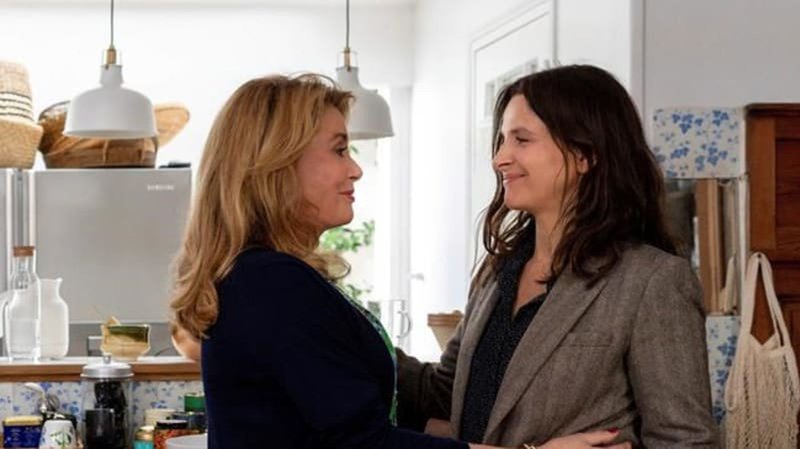
Review: A master class by Catherine Deneuve in ‘The Truth’
Family may be the great subject of Japanese filmmaker Hirokazu Kore-eda, but he doesn’t draw straightforward portraits. In Kore-eda’s hands, family is more malleable. He tends to shift roles around like he’s rearranging furniture, subtly remaking familiar dynamics until he has, without you knowing it, undone everything.
In his delicate, devastating and deeply humane films, family works like a prism, a way to see things often obscured in Japanese society. In “Like Father, Like Son,” a switched-at-birth tale (usually the stuff of melodrama) is used to delicately render class divisions. In “Nobody Knows,” four children of different fathers and one mother for a moment find harmony together. In his Palme d’Or-winning “Shoplifters,” a makeshift and impoverished clan are a truer family than most that are bound by DNA.
For Kore-eda, family is a choice. And in his latest and first French-language film, “The Truth,” it’s a choice that his central character — a celebrated French actor played by Catherine Deneuve — has seemingly abdicated. “I prefer to have been a bad mother, a bad friend and a good actress,” she says without regret.
Kore-eda has shifted from Japan to Paris. Fabienne (Deneuve) is a grand dame of French cinema not so unlike Deneuve, herself, who is visited by what she calls the “little family” of her daughter, Lumin (Juliette Binoche) from New York. With Lumin are her actor husband Hank (Ethan Hawke) and daughter Charlotte (Clémentine Grenier). They arrive just as Fabienne’s not entirely factual memoir, titled “The Truth,” is being published. “My memories, my book,” she says.
